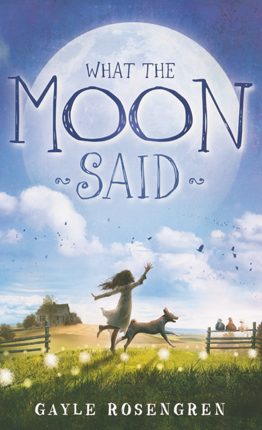Full Text Reviews: Booklist - 12/15/2013 When Depression-era hard times send Esther’s family from their Chicago home to try their luck on a small Wisconsin farm, the 10-year-old learns that there are many ways people show love. Esther’s mother never hugs or kisses her. Does she even love her? Over the course of their year in the country, Esther tries desperately to be a good daughter, but the practical realities of their near-pioneer life (no electricity or running water) leave her mother little time to notice. And while the bookish child admires her fearful mother’s ability to read signs, she can’t bring herself to give up her new friend Bethany, even if her mother says the girl was marked by angry fairies. Eventually, Esther finds much to enjoy in her new farm life. Debut author Rosengren weaves plenty of Old World superstitions into her heartwarming story, contrasting those who fear the future with those who embrace it. Esther’s positive attitude offers a fine model for readers of this engaging historical fiction. - Copyright 2013 Booklist. School Library Journal - 02/01/2014 Gr 5–8—Growing up in Depression-era Chicago, Esther desperately wants her immigrant mother to be more affectionate. Faced with her father's job loss, the family moves to a small farm in Wisconsin to start over. Esther welcomes the adventure to be had in this new life-a dog, a good friend, and especially the chance to be like the pioneers. Embracing a home without electricity or running water doesn't daunt her mother and Esther hopes that by emulating that fortitude, she will earn her mother's love and warmth. It takes losing the farm and a serious illness for Esther to realize that her mother does, in fact, love her and her acts of affection may not be found in words or hugs, but rather the way in which she uses her superstitions to protect and guide her family. Told over the course of a year, the story triumphs in its small vignettes. Esther's relationship with her siblings, however, has little depth, and while the ups and downs of life on a farm are poignant, there is more telling than showing. Though the ending resolves the story neatly, it does not build to a truly satisfying conclusion. Still, readers who enjoy historical fiction or mother/daughter relationship stories may enjoy this quiet tale.—Beth Dobson, Weatherly Heights Elementary School, Huntsville, AL - Copyright 2014 Publishers Weekly, Library Journal and/or School Library Journal used with permission. Bulletin for the Center... - 03/01/2014 A ring around the moon is an omen; so is seeing a spider before breakfast or crows atop a fence, and opening an umbrella inside the house. Esther’s Ma imparts these old-world lessons to her children in their Chicago home, where they live a modest but happy life until the onset of the Great Depression. When Pa loses his job and the family moves to a small farm in Wisconsin, ten-year old Esther embraces the adventure, excelling in school and devising new ways of getting taciturn Ma—who’s particularly reserved with Esther—to love her. Their exciting pioneer life takes a bleak turn as food becomes scarce, the family must sell their possessions, and Ma’s temper shortens with each passing day. When Esther falls deathly ill, she learns the difference between demonstrative affection and love in action and realizes that omens are often what we make of them. Rosengren’s depiction of the Great Depression from a child’s perspective rings true, with the direness of financial circumstances not as keenly felt as the desire for approval from one’s mother. Though Esther’s constant worry over her mother’s love feels forced at times, the sentiment will resonate with young readers whose parents show love in ways other than constant displays. The author’s keen understanding of the emotions and preoccupations of late childhood shine through Esther, including the struggle to interpret adult behavior and reconcile family rules with personal truths. Sensitive and engaging, this novel would work as an accompaniment to a classroom unit on the Great Depression, as well as in the hands of a child who thinks her parent loves her but isn’t always sure. AA - Copyright 2014 The Board of Trustees of the University of Illinois. Loading...
|



